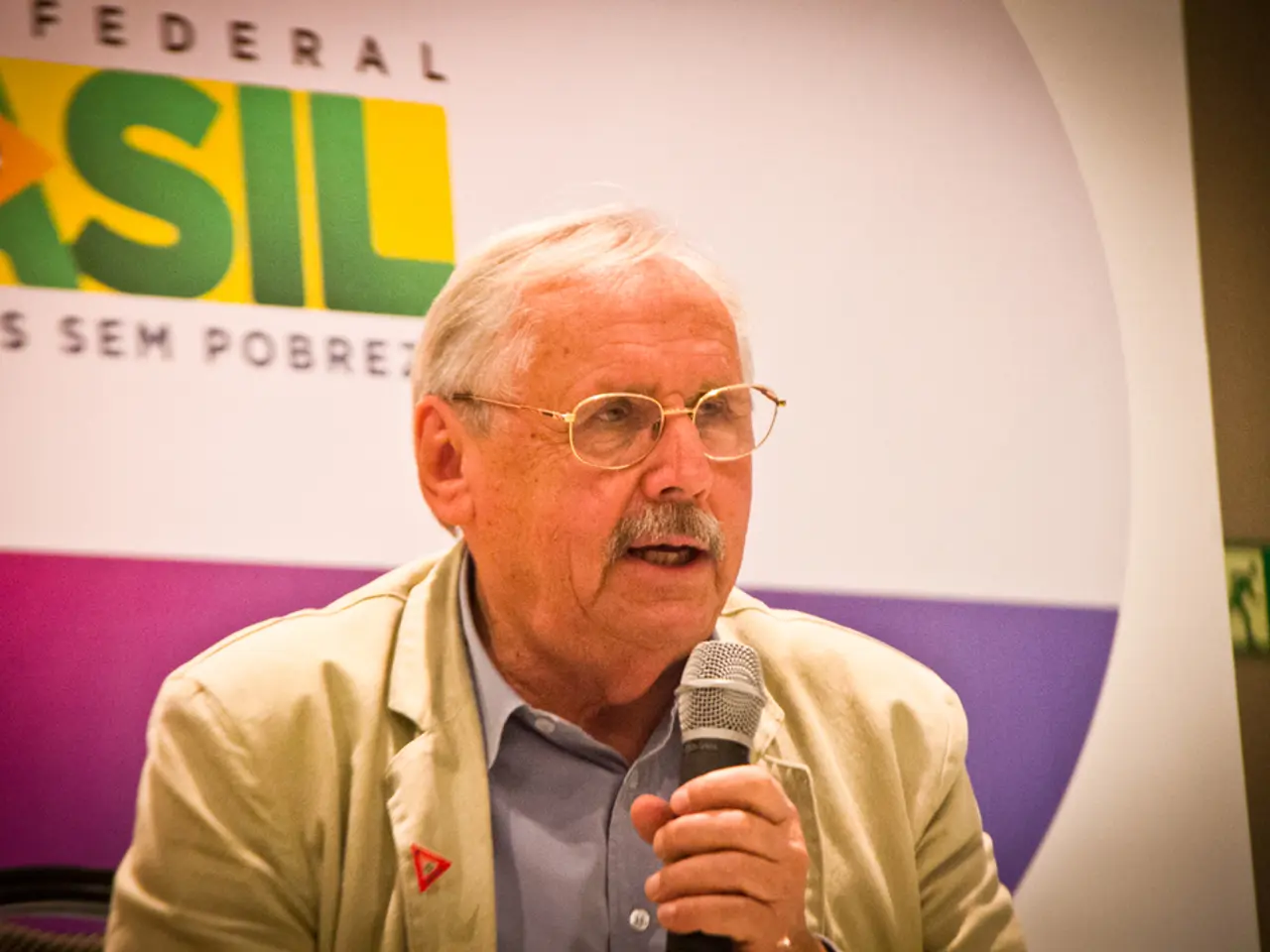Israeli Prime Minister Netanyahu advocates for a military approach to rescue hostages, according to the report
In the heart of the Middle East, the ongoing hostage crisis in Gaza continues to grip the world's attention, with international concern escalating over critical levels of hunger and imminent famine in parts of the region.
Approximately 50 Israeli citizens have been held captive by Hamas and allied Palestinian groups since the surprise attack on October 7, 2023. Reports suggest that 20 of these hostages are still alive, while 28 are believed to have died in captivity under harsh and abusive conditions.
Earlier prisoner swaps have seen the release of over 100 hostages, including vulnerable groups. However, the majority remain detained, and Hamas has indicated a policy of killing hostages if military rescue operations are attempted, effectively pushing Israeli authorities towards negotiated prisoner exchanges as the only means to secure their release.
Israeli Prime Minister Benjamin Netanyahu's government has prioritized obtaining the safe return of hostages as a central goal of its military and diplomatic efforts. This involves international mediators like Qatar in negotiations and a combination of military pressure in Gaza and diplomatic efforts aimed at prisoner exchanges.
The Israeli stance emphasizes a combination of military pressure in Gaza and diplomatic efforts aimed at prisoner exchanges, while publicly denouncing Hamas’s treatment of hostages as inhumane and unlawful. The hostage crisis is framed as a key national trauma and a leverage point in the broader Gaza conflict, with Israeli leaders insisting on the unconditional return of hostages and condemning Hamas’s tactics as part of what analysts call a “cognitive warfare” strategy designed to weaken Israeli society and its leadership by psychological means.
The aid distribution system in Gaza is being inspected by U.S. and Israel officials, with U.S. Ambassador to Israel Mike Huckabee traveling to the Middle East on August 3 to inspect the U.S. and Israel-backed aid distribution system. Thousands of protesters in Tel Aviv have demanded an end to the war and the return of the last hostages.
Despite Israel maintaining that it is sending enough aid into Gaza, international aid organizations have repeatedly stated that there is not enough aid, and the United Nations has reported conditions of malnutrition inside Gaza. At least 175 people, including 93 children, have died from malnutrition, according to the Gaza Health Ministry.
The conflict in Gaza has resulted in a hunger crisis, with reports of increasing deaths due to malnutrition. Ilay David, whose brother Evyatar David is among the remaining hostages, stated that the hostages may have only days left to live due to their current condition.
As the crisis continues, the international community, aid organizations, and Israel are working tirelessly to secure the safe return of the hostages and alleviate the suffering in Gaza. The situation remains complex, with military operations, diplomatic efforts, and humanitarian aid all playing crucial roles in the ongoing response.
- The international community is closely following the video updates of the hostage crisis in Gaza, expressing deep concern about the escalating health problems and imminent famine in the region.
- In light of the ongoing hostage crisis, the Israeli government's entertainment strategy includes highlighting the inhumane treatment of hostages by Hamas as a main theme in their general news broadcasts.
- The travel ban imposed on Israeli officials by Hamas has restricted the diplomatic efforts to secure the release of the remaining hostages, which are now being primarily focused on negotiations and prisoner exchanges.
- A war-and-conflicts correspondent from an international entertainment network is documenting the coverage of the Gaza hostage crisis, providing updates on political developments, crime-and-justice aspects, and general news related to the situation.







